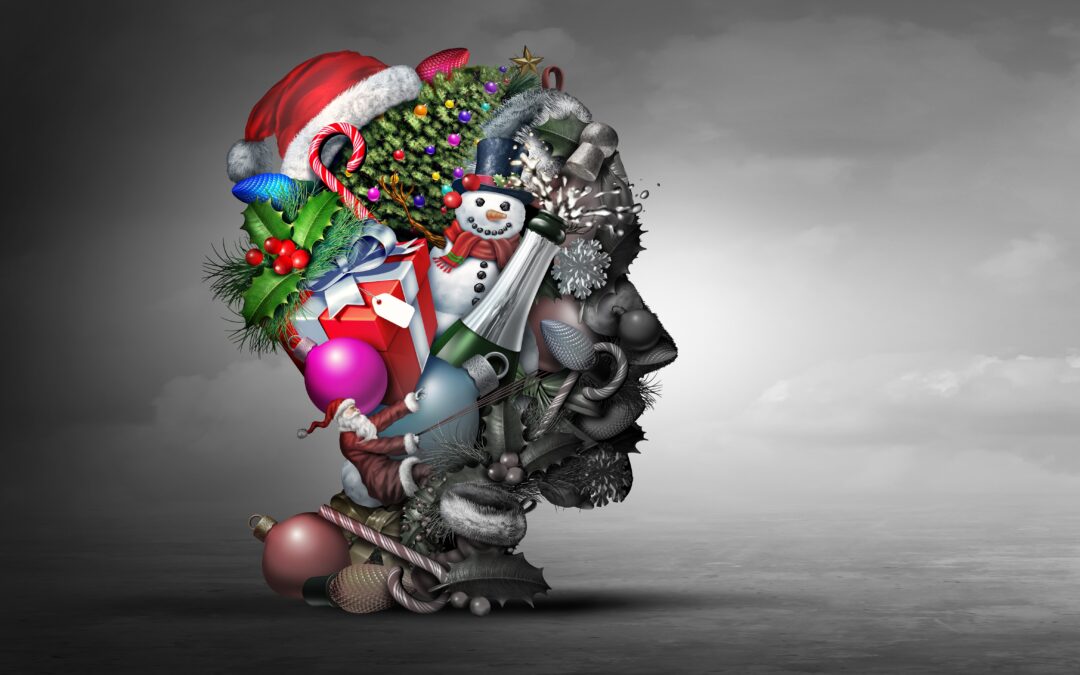The holiday season is often portrayed as a time of joy and family unity, where the worries of the world fade into the background amid the festive atmosphere. However, this narrative doesn’t hold true for everyone. For some, the holidays bring an increase in stress, a sense of loss or isolation, and a rekindling of old wounds — all of which can be fertile ground for depression and addiction to take root or intensify. Recognizing the signs of these mental health challenges during the holidays is crucial for early intervention and support. Here, we will explore the symptoms of depression and addiction that may surface during the festive season and the steps we can take to address them.
The Weight of Winter: Understanding Seasonal Depression
Depression during the holidays can often be exacerbated by the season itself. Shorter days and longer nights can lead to Seasonal Affective Disorder (SAD), a type of depression related to changes in seasons. But beyond SAD, the holidays can amplify existing depressive conditions for various reasons, from stressful family interactions to the memories of lost loved ones.
Recognizing the Signs of Depression
- Persistent Sadness: A melancholic mood that doesn’t lift, even when there are opportunities for joy, can be a sign of depression.
- Loss of Interest: Disinterest in holiday activities or hobbies that one usually enjoys could indicate a deeper issue.
- Fatigue and Sleep Issues: Excessive tiredness or changes in sleep patterns, such as insomnia or oversleeping, are common symptoms.
- Changes in Appetite or Weight: Significant weight loss or gain or changes in eating habits can be physical manifestations of depression.
- Feelings of Worthlessness: Expressions of self-loathing, guilt, or worthlessness are red flags, especially if they are a departure from the person’s usual self-perception.
- Physical Pain: Unexplained aches and pains, headaches, or cramps that don’t ease with treatment may be linked to depression.
- Irritability or Restlessness: An uncharacteristically short temper or agitation can be symptoms, particularly in men and teenagers.
- Social Withdrawal: Opting out of social gatherings and a desire to be isolated could be a symptom rather than a mere preference for solitude.
- Alcohol or Drug Misuse: An increase in substance use during the holidays can be a sign of self-medicating for depressive feelings.
Addiction Amidst Celebration: A Cloaked Escalation
The holiday season can often act as a catalyst for substance abuse disorders. With alcohol being a staple at many holiday events, it can be difficult for individuals struggling with addiction to maintain sobriety. Likewise, those who may not typically drink or use drugs excessively might find themselves overindulging as a means to cope with holiday stress or sadness.
Identifying the Signs of Addiction
- Increased Tolerance and Use: A noticeable increase in the amount of substance needed to achieve the same effect, or more frequent use, can be signs of developing addiction.
- Neglecting Responsibilities: Failing to meet work, school, or family obligations because of substance use is a concerning sign.
- Withdrawal Symptoms: Experiencing physical withdrawal symptoms when not using the substance indicates dependency.
- Secrecy and Deception: Going to great lengths to hide substance use, lying about the amount consumed, or being secretive about activities can all be signs of a problem.
- Changes in Social Circles: Abandoning friendships or activities in favor of new friends who also use substances can be indicative of addiction forming.
- Using to Cope: Relying on drugs or alcohol to deal with stress, to relax, or to feel ‘normal’ can signal a growing dependence.
- Financial Issues: Spending money on substances despite not being able to afford them, resulting in financial strain, is a common occurrence in addiction.
- Risk-Taking Behavior: Engaging in dangerous activities when under the influence or in order to obtain substances is a red flag.
- Continued Use Despite Problems: Continuing to use even when it’s causing health problems, relationship issues, or emotional distress shows a likely addiction.
Addressing the Challenges: Steps Towards Wellness
If you or someone you know is showing signs of depression or addiction during the holidays, taking action is crucial. Here are some steps to consider:
- Reach Out for Support: Encourage conversations with trusted friends or family members, or seek support from mental health professionals or support groups.
- Maintain Healthy Routines: Keeping up with regular exercise, adequate sleep, and a balanced diet can mitigate some symptoms of depression and addiction.
- Manage Stress: Implement stress-reduction techniques such as mindfulness, meditation, or deep-breathing exercises.
- Limit Alcohol: If alcohol is a trigger, it’s important to set boundaries around its presence and consumption during the holidays.
- Plan Ahead: If certain events or situations are known to be particularly difficult, make a plan to navigate them, including having an exit strategy if necessary.
- Focus on Meaningful Activities: Engage in activities that bring genuine joy and avoid those that feel like obligations.
- Volunteer: Sometimes helping others can provide a sense of purpose and perspective that combats feelings of depression.
- Professional Help: Therapy or counseling can be immensely beneficial. For those struggling with addiction, consider rehabilitation programs or recovery resources.
Navigating the Holidays: A Holistic Approach
The holidays are not inherently joyful for everyone, and recognizing the spectrum of emotions that they can bring is the first step toward fostering a supportive environment for mental health. If you’re struggling, remember that you’re not alone, and that help is available. If you’re concerned about a loved one, approach them with empathy and offer your support.
In conclusion, while the holiday season can exacerbate issues like depression and addiction, it also provides an opportunity for us to come together, support one another, and take proactive steps towards wellness. By being mindful of the signs and knowing how to address them, we can all contribute to making the holidays a more inclusive and supportive time for everyone.

